Graham Reid | | 2 min read
Ornette Coleman Trio: Dawn
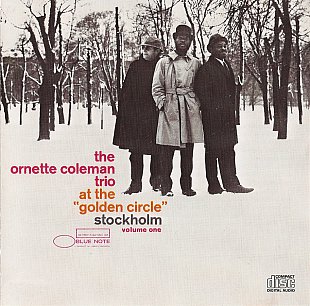
As far as I can see by looking back, Ornette Coleman is the first artist to have two entries at Essential Elsewhere, he has appeared previously with The Shape of Jazz to Come.
Although, to be honest, he should also be here for Virgin Beauty (1988) but the damn thing is out of print.
However this classic Coleman album recorded in Sweden is not just essential, but is now readily available again. It was one of the few albums he recorded for Blue Note and is part of the vinyl re-issue programme (the records come with download codes for mp3s) happening to celebrate that label's 75th anniversary.
Coleman never underestimated his artistic value (although perhaps over-estimated his sales potential) and after some breakthrough albums for Contemporary and Atlantic found himself without a contract in the mid Sixties.
Blue Note stepped up (despite the demands he often made) and the original plan was to record a live concert in New York's Town Hall for the label.
But that -- somehow, the machinations have never been clear -- came out on the small but daring ESP label. Blue Note boss Francis Wolff, making a rare appearance as producer at this time, decided to have Coleman's trio (of bassist David Izenzon and drummer Charlie Moffett) recorded when they played at a restaurant in Stockholm, Gyllencirkelt (Golden Circle).
The results -- recorded by Rune Andreasson and remastered by Rudy Van Gelder -- appeared on two volumes, each with the same cover shot by producer Wolff of the trio isolated and huddled together in the snow.
At this time Coleman was at a particular peak of expression and if his Free Jazz album of '60 had been a step too far for many -- two quartets improvising simultaneously was always going to be a tough call for some -- on this date he stretched himself but less so his audience.
On the second night recorded (they played a short residency) Coleman played violin and trumpet in his own idiosyncratic way on Snowflakes and Sunshine (Miles Davis thought his trumpet efforts an insult to those who knew how to play the instrument).
Of the two volumes released, this first one is the stronger.
It mostly lifts from the second night's recordings at Gyllencirklet -- only Dawn among the four pieces taken from the first night, Snowflakes and Sunshine not among them -- and in this naked setting (Coleman rarely worked with a pianist) every element is laid bare.
Coleman had a confidence in understatement and direct melodicism in places here. And the quirky humour in his playing -- so often overwhelmed in other contexts -- comes through in his quizzical saxophone lines, notably on European Echoes which opens with punctuating notes like some minimalist stately waltz.
European Echoes circles back on itself to be bookended by what in other hands might be a "head" but for Coleman are just individual notes to be dropped with precision until no longer required and his thoughts go elsewhere.
The lively Dee Dee -- with cannoning punctuation by Moffett -- is one of Coleman's most bouncy and endearing tunes (and anticipated his even more flighty playing on Virgin Beauty).
And Dawn is a lovely, ruminating piece with a melancholy ballad tone -- utterly assured when some were saying he couldn't actually play -- as Izenzon pulls in eerily gothic arco colour and Moffett stays barely present with just judicious emphasis.
The opener Faces and Places is a Rubik Cube of ideas, some appearing as the elements are suddenly shifted. But it remains constantly exciting and unpredictable, driven on in its early phases by Moffett's martial beat and quiet energy.
Coleman kept this trio for only a few years around this time, but it was one of his most vibrant and interesting jazz line-ups between the Fifties and Seventies.
 And At the Golden Circle Vol 1 is a fine, almost easy, entry point into the work of this often uncategorisable musical genius who prefers to consider himself an American composer than a jazz musican.
And At the Golden Circle Vol 1 is a fine, almost easy, entry point into the work of this often uncategorisable musical genius who prefers to consider himself an American composer than a jazz musican.
It's just that he often composes in the moment, as the best jazz musicians do.
For more on Ornette Coleman at Elsewhere start here.

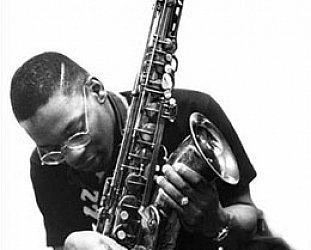

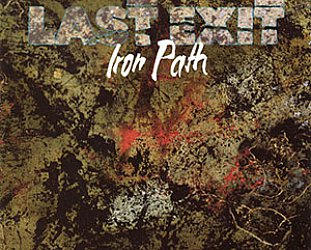
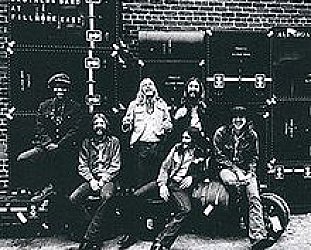
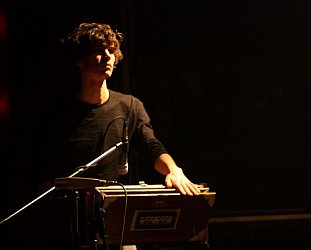
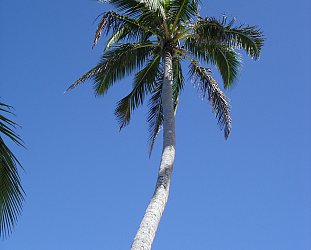
post a comment